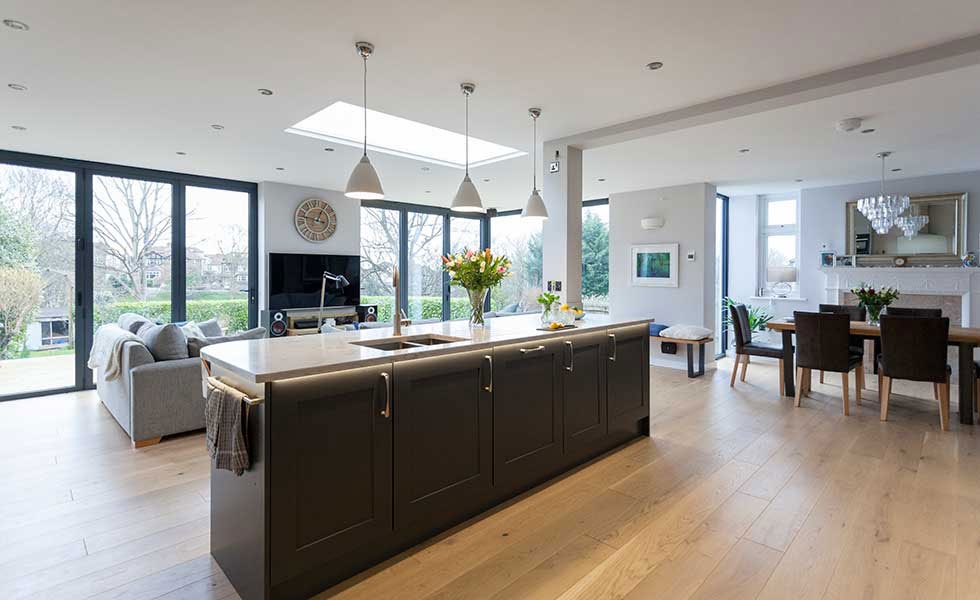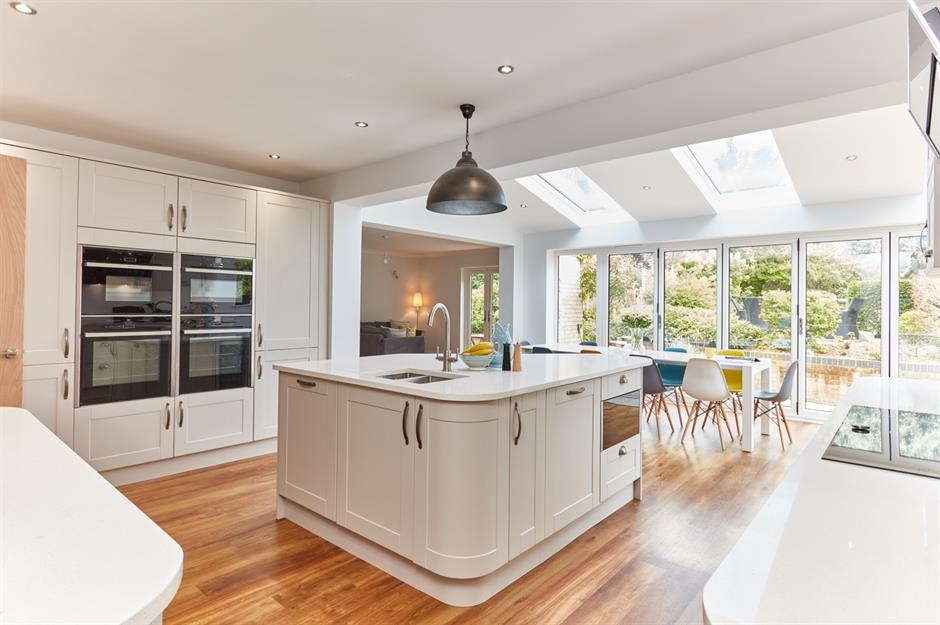Kitchen Extension plans
A kitchen extensions are one of the best ways to transform a kitchen from a cramped and awkward space to somewhere that the whole family can use. Modern kitchens aren’t confined just to cooking, they’re spaces for living, dining, socialising, doing homework, playing and more.
If you have a small kitchen, a kitchen extension is one of the most valuable areas of your home you can extend to create a more usable space. Incorporating a dining or living space can also help free up room in the rest of your home, which could be used for a home office, for example, with the potential of a domino-effect in freeing up space to rework the layout upstairs too.
The rise in popularity of these multi-functional spaces goes hand in hand with a boom in home improvements. PDS Architectural Plans allows you to create the right proportions for an open plan space that can integrate all these areas into one.
Kitchen extensions are a big project to undertake, no matter what size or style you choose. The cost implications means its important you get your design right too.
In some circumstances kitchen extensions can be done without planning permission, (permitted development).
We produce and submit the necessary architectural drawings to the local authority on your behalf. This includes the application forms for both planning permission (if required) and building regulations.
PDS Architectural Plans can visit you at your home for a free no obligation consultation and feasibility study. We cover kitchen extensions in Middlesbrough, Stockton, Darlington, Redcar, Hartlepool or in the surrounding areas of Cleveland, Durham and North Yorkshire.


F.A.Q.
Most development – building, land engineering or mining operations and changes of use – requires planning permission. Some but not all minor development – including home extensions – are known as “Permitted Development” and do not need a formal application are but are subject to certain restrictions. Always check first with the Development Enquiry Centre. The demolition of dwellings, some small agricultural buildings and some special telecommunications development do not need permission but require notification.
Your application will go through five council stages:
- Booking in –Checks to make sure the correct information – location plan and drawings and fee – has been received.
- Publicity and consultation –Your application will appear on the weekly list published in libraries and on the Council website, a notice may be posted near the site and neighbours may be sent a letter seeking their views. They have 21 days to respond. Specialist comments may be obtained on highways and environmental matters – these can be vital considerations.
- Negotiations and amendments -All application sites are visited and then negotiations may take place with you or your agent to overcome any problems with your application.
- Making the decision – Senior officers make most decisions but some are made by Councillors at one of the three Plans Panels which each meet every four weeks. If your application goes to Plans Panel you may inspect the report on it five days before the meeting. You and any supporters or objectors may attend the meeting and make a short address. The Panel may decide to visit site or ask officers to negotiate further before a final decision is made.
- The decision -We will send out your Decision Notice on the day that the decision is made. It will set out the reasons for approval or refusal of the application and, if permission has been granted, any conditions with which you have to comply.
Minor changes can be made but must only be very small and must not change your permission in any significant way. You should complete the Non Material Amendments application form and submit it with the revised drawings (with the changes highlighted). A fee is payable. If you wish to make more significant changes or to amend or remove a condition, you will have to make a further planning application.
In addition to planning approval you may need other permissions such as building regulations approval. You may also have to gain other consents, for example a variation to the deeds of your property. You are advised to check any such requirements before you start work.
Full Planning Permission normally lasts three years. Outline Planning Permission only approves the principle of the development . The remaining details – known as “Reserved Matters” have to be approved before you can start any development. It normally expires after three years from the date of approval or two years after approval of reserved matters. Reserved matters must be submitted within three years.
